#Specifically Inertia
Explore tagged Tumblr posts
Text
Girl help I'm getting music video ideas outside of my creative abilities
#Listen all I'd need is a stage#A desk chair#Some cardboard boxes#Some Gym equipment#A dining table#Multiple musicians#People who are patient enough to do stop motion with them#Oh and some markers#The Maybe Man has my brain in a chokehold#Specifically Inertia#ajr#the maybe man
69 notes
·
View notes
Text

an object in motion, don't ask where I'm going 'cause where I am going, is right where I am
#dungeon meshi#delicious in dungeon#mithrun#quick between things#lyrics are#inertia by ajr#specifically the acoustic version tbh i like that a lot more#fanart#artists on tumblr#elf#dunmeshi
537 notes
·
View notes
Text
Sometimes you just have to listen to the live version of a song and feel like you're ascending to godhood...

#this is specifically about the following:#like real people do#how to rest#inertia#hozier#the crane wives#ajr#the chain#fleetwood mac#but also some others#the only time i have ever come CLOSE to believing in god was listening to in the bleak midwinter#lover of the light#mumford & sons#ol' man river#judy garland#wishing well#the oh hellos#trees#running up that hill#first aid kit#think of england#bear's den#anthem part 2#blink 182#the wages#june#florence + the machine#have the live versions of all of these songs on my phone
88 notes
·
View notes
Text
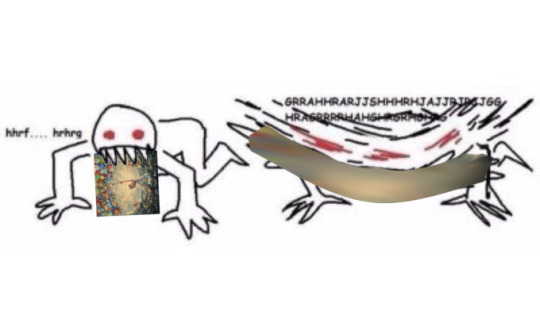
#finally listening to that new album#so many songs for the guys in my head#ajr brothers#ajr#ajr band#ajr the maybe man#specifically tearing apart#2085#hole in the bottom of my brain#and#inertia
142 notes
·
View notes
Text
I'm stuck in this life, and I'm stuck in these pants.
AJR, Inertia
#let's got#ajr#the maybe man#inertia#hi i could write an essay on this song and this one line specifically#i've typed inertia so many times tonight it does Not feel liek a real word
37 notes
·
View notes
Text
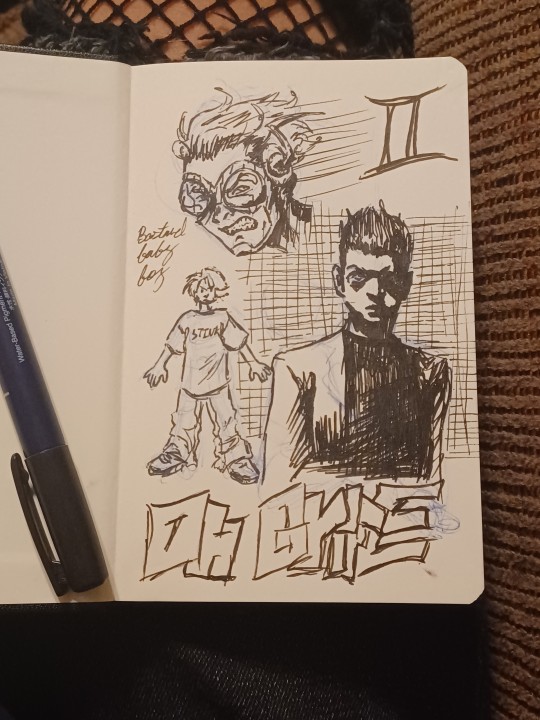
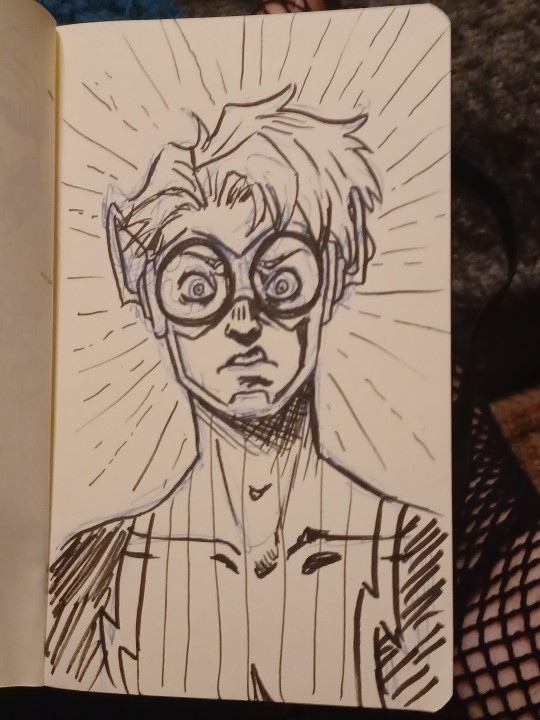
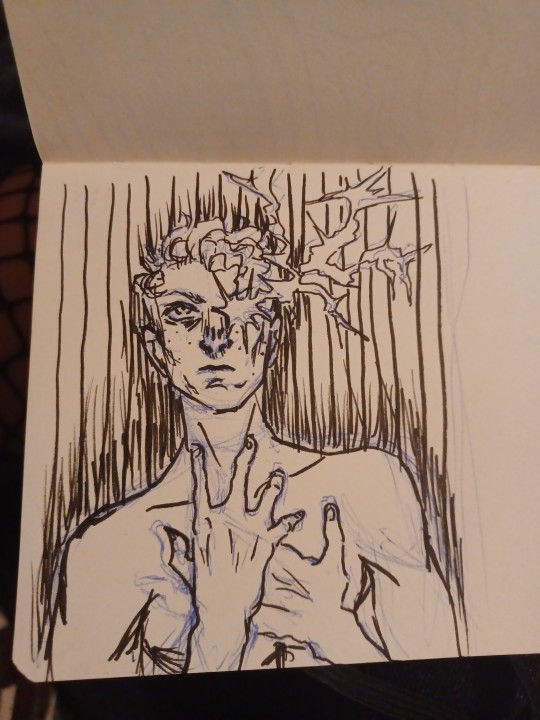
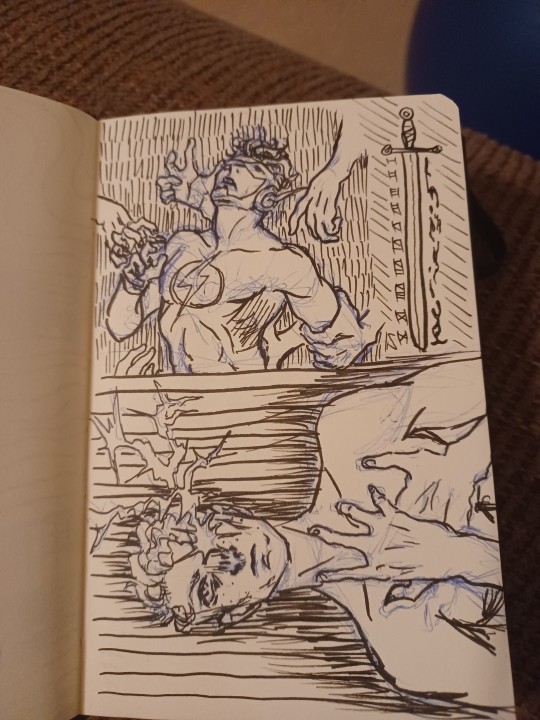
Traditional art speedster dump
#artists on tumblr#illustrators on tumblr#dc comics#sketch#my art#speedsters#my art shit#wally west#bart allen#thaddeus thawne#thaddeus thawne ii#specifically#damian wayne#traditional art#wally is def my favorite#flash dc#dc comcis#inertia#impulse#flash#robin#kid flash
143 notes
·
View notes
Text


It's emo over Thad Thawne hours. Have some nutrient womb edits
#thad thawne#thaddeus thawne#inertia#it's specifically emo over Five hours but y'know.#thad clones <3333#best viewed in goth rave theme
51 notes
·
View notes
Text
help I’ve started listening to my chemical romance 😭
#just pav things#when someone’s music taste is a natural extension of my own I will assimilate their favourite artist into my being <3#and honestly this was doomed to happen too.#like. the first album I ever remember listening and doing a silly dance to was Bon Jovi’s Cross Road in KINDERGARTEN#and then I grew up with shoji meguro’s work on persona 4 golden (2012)#I’m literally the girl who thinks electric guitar is the bestest instrument ever#Soo yeah 😅 Turns out Pav was the true emo the whole time 😂#this is what happens when you grow up with literally subgenre of rock at your disposal :>#Anyways this has spurred some heated debate in my mind#Namely. Would Inigo actually listen to this in character?#ITS A COMPLICATED TOPIC THAT’S REALLY TESTING MY KNOWLEDGE OF HIS CHARACTERISATION#Just like how Dolphin asks those difficult questions about Archie where it requires really late-stage psychological thoroughness#and intimate understanding of said deepest parts of the psyche#Because here’s the deal right? We all know Inigo is wearing a false edgier persona to prevent any closeness with other people#Key word: false.#But that’s not the whole picture either is it? He has a harness up to his neck because he wallows in his guilt about Archie#It’s a torture device for him. He’s wearing uncomfortable clothing on purpose.#It almost feels like he would listen to mcr to induce the comfortable inertia of emptiness that sustains his depressed existence#It keeps him thinking about negative topics. Keeps him lost in his nightmarish slumber that is a life devoid of true connection to others#So it would help MAINTAIN his emo mask through willing engagement. Thus preventing Inigo from breaking due to sheer psychological duress~#And c’mon who would listen to ‘you know what they do to men like us in prison’ and NOT think of Archie and Inigo#Or specifically. How Inigo PERCIEVES Archie#They’re both deeply entrenched in sin :3 And Inigo thinks he doesn’t suffer enough for what he did— ‘or just not enough pain in my heart fo#your dying wish’ (dying this case being. metaphorical. y’know)#And then that line of ‘I’ll kiss your lips again’#Like kissing goodbye to a sweet death~#So like. Inigo is trying to reinforce the idea that he’s a murderer in his mind 😭#And that’s my thesis on WHY Inigo would listen to mcr and his response if appropriate 😤 He’s trying to brainwash himself ✨✨✨
5 notes
·
View notes
Text
was scrolling through r/battlebots and fell into a [REDACTED] (Vertigo) rabbit hole and I think I do have an idea on who they could be but im afraid ill overthink it/sound like a conspiracy theorist LMAO so i might make a fun theory post here eventually.
#bunny_txt#battlebots#spoiler alert its totally Inertia Labs#its deffo not Paul either i dont think hes ever coming back#but ill save the investigating to the folks who are good at stuff like this#ie. ppl with photoshop so they can look through each individual frame of the insta video and edit it to find secret messages#sounds really specific but i tried on my free editing program. couldnt find anything.#id never thought we'd basically have a battlebots ARG but here we are.
5 notes
·
View notes
Note
I like to think of 3rd as a former bodyguard of All for One, maybe he wasn't born with a quirk too. Maybe he received one from All for One and dedicated himself to serving him as a result only to come to his senses later on.
There was a bit of time when I thought that the ponytailed masked bodyguard of AfO was going to turn out to be the same as the pineapple silhouette one, (the indents on one's mask being similar to the shape the other's headband made from the side) and that like, he put his hair up when he changed sides and wore slightly new clothes and that he was the one to either get Yoichi out of that vault or pass information onto Second so he could get him out. But then we got more clear shots of Third with lighter hair and it seemed more likely Giga was the fate of the bodyguard... But I'll always have a fondness for former AfO guard Third. Perhaps his turning is why Yoichi is glad to see Izuku trying to save Tenko, perhaps that's why Third kept away from Izuku, shame or sure that he'd fail because at least Third was an adult at the time, and what hope do they really have, and why drag the kid in further... Love that plus I think we really should have more former villains in the OfA lineup
#also if AfO gave Third fa jin i think i would hate the quirk a lot less#it's so booooooring and dumb and just ofa-lite and i was really hoping for interesting weak early quirks#to test Izuku's quirk clever thinking#like the ability to increase the temperature inertia of a small bit of liquid- keep a cup of water cooler longer or a bowl of soup warm#and now Izuku's got to figure out the combat use of that boosted to 100x#BUT see now if AfO really did keep finding so many little stockpile quirks#itd kinda make sense that he'd just be tossing em out#to his expendable body guard and his weak little brother and who knows who else#stockpile being common like that and thrown away and then two of them together contributing to the downfall of AfO?#to the one who devalued them so much? that'd be neat!#but noooo the most villainous we can get is 'ohhh second and third killed a few people in their fight against AfO'#which as it happens after the reveal of AfO's extensive murder -> zombie guard pipeline and the villains killing thousands on thousands#with cities activity wrecked and the only reason it's not a total villain victory at all is the Hawks murder moment like....#yeah I'm not exactly feeling the weight of Second or Third having blood on their hands and possibly occasionally losing sight of the#humanity of their enemies. especially since the only specific we see is them rescuing Yoichi anyway so like#that would have hit more of we had seen some of their prior actions! that could have been actually setting up past villain users!#Third having actually worked for AfO first! even if it was i don't know‚ a double agent move‚ could have really dug that point home#but anyway yeah i like that. third deserves more cool backstories in fic#anon#pocket talks to people
14 notes
·
View notes
Text
That is, none of them specified a specific mechanism whereby an object acquires its mass – its inertia – the attribute that fights accelerations.
"The Fabric of the Cosmos" - Brian Greene
#book quote#the fabric of cosmos#brian greene#nonfiction#specifications#mechanism#mass#inertia#acceleration
0 notes
Text
what if crane wives album made me cry. what then
#SO MANY LINES#its telling me to do all the things im too scared to confront#no that specifically but balck hole fantasy ARGH#EVEN IN MY FANTASY I CANT COMMIT TO BELIEVING#THAT I WILL GET WHAT I WANT#AND ON THE OTHER SIDE IS ANOTHER LIFE/A VERSION OF ME WITH A SPARK IN HER EYES THAT I DONT HAVE/AND ITS KILLING ME THAT I CANT SEE WHATS MA#ING HER LAUGH#but lie also this song has a happy enidng and i cant bring myslef to take aciton inertia is safe intertia is ripping me apat#AND ALSO#no i AM LOYAL TO A FAULT I WILL SIT HERE WAITINGGG I WILL SIT HERE WAITINGGGGG FOR THE AXE TO FALLL#it aches in my chest still#ahoys thoughts#nothing will change unless i change STOP IT STOP IT STOP IT OW#We all outgrow our roots....... and i will eat the dead ones it will stay in the beside chest of my heart
1 note
·
View note
Text
Principles and Laws of Magic for Fantasy Writers
Fundamental Laws
1. Law of Conservation of Magic- Magic cannot be created or destroyed, only transformed.
3. Law of Equivalent Exchange- To gain something, an equal value must be given.
5. Law of Magical Exhaustion- Using magic drains the user’s energy or life force.
Interaction and Interference
4. Law of Magical Interference- Magic can interfere with other magical effects.
6. Law of Magical Contamination- Magic can have unintended side effects.
8. Law of Magical Inertia- Magical effects continue until stopped by an equal or greater force.
Resonance and Conditions
7. Law of Magical Resonance- Magic resonates with certain materials, places, or times.
9. Law of Magical Secrecy- Magic must be kept secret from the non-magical world.
11. Law of Magical Hierarchy- Different types of magic have different levels of power and difficulty.
Balance and Consequences
10. Law of Magical Balance- Every positive magical effect has a negative consequence.
12. Law of Magical Limitation- Magic has limits and cannot solve every problem.
14. Law of Magical Rebound- Misused magic can backfire on the user.
Special Conditions
13. Law of Magical Conduits- Certain objects or beings can channel magic more effectively.
15. Law of Magical Cycles- Magic may be stronger or weaker depending on cycles (e.g., lunar phases).
17. Law of Magical Awareness- Some beings are more attuned to magic and can sense its presence.
Ethical and Moral Laws
16. Law of Magical Ethics- Magic should be used responsibly and ethically.
18. Law of Magical Consent- Magic should not be used on others without their consent.
20. Law of Magical Oaths- Magical promises or oaths are binding and have severe consequences if broken.
Advanced and Rare Laws
19. Law of Magical Evolution- Magic can evolve and change over time.
20. Law of Magical Singularities- Unique, one-of-a-kind magical phenomena exist and are unpredictable.
Unique and Imaginative Magical Laws
- Law of Temporal Magic- Magic can manipulate time, but with severe consequences. Altering the past can create paradoxes, and using time magic ages the caster rapidly.
- Law of Emotional Resonance- Magic is amplified or diminished by the caster’s emotions. Strong emotions like love or anger can make spells more powerful but harder to control.
- Law of Elemental Harmony- Magic is tied to natural elements (fire, water, earth, air). Using one element excessively can disrupt the balance and cause natural disasters.
- Law of Dream Magic- Magic can be accessed through dreams. Dreamwalkers can enter others’ dreams, but they risk getting trapped in the dream world.
- Law of Ancestral Magic- Magic is inherited through bloodlines. The strength and type of magic depend on the caster’s ancestry, and ancient family feuds can influence magical abilities.
- Law of Symbiotic Magic- Magic requires a symbiotic relationship with magical creatures. The caster and creature share power, but harming one affects the other.
- Law of Forgotten Magic- Ancient spells and rituals are lost to time. Discovering and using forgotten magic can yield great power but also unknown dangers.
- Law of Magical Echoes- Spells leave behind echoes that can be sensed or traced. Powerful spells create stronger echoes that linger longer.
- Law of Arcane Geometry- Magic follows geometric patterns. Spells must be cast within specific shapes or alignments to work correctly.
- Law of Celestial Magic- Magic is influenced by celestial bodies. Spells are stronger during certain astronomical events like eclipses or planetary alignments.
- Law of Sentient Magic- Magic has a will of its own. It can choose to aid or hinder the caster based on its own mysterious motives.
- Law of Shadow Magic- Magic can manipulate shadows and darkness. Shadowcasters can travel through shadows but are vulnerable to light.
- Law of Sympathetic Magic- Magic works through connections. A spell cast on a representation of a person (like a doll or portrait) affects the actual person.
- Law of Magical Artifacts- Certain objects hold immense magical power. These artifacts can only be used by those deemed worthy or who possess specific traits.
- Law of Arcane Paradoxes- Some spells create paradoxes that defy logic. These paradoxes can have unpredictable and often dangerous outcomes.
- Law of Elemental Fusion- Combining different elemental magics creates new, hybrid spells with unique properties and effects.
- Law of Ethereal Magic- Magic can interact with the spirit world. Ethereal mages can communicate with spirits, but prolonged contact can blur the line between life and death.
- Law of Arcane Symbiosis- Magic can bond with technology, creating magical machines or enchanted devices with extraordinary capabilities.
- Law of Dimensional Magic- Magic can open portals to other dimensions. Dimensional travelers can explore alternate realities but risk getting lost or encountering hostile beings.
- Law of Arcane Sacrifice- Powerful spells require a sacrifice, such as a cherished memory, a personal item, or even a part of the caster’s soul.
#writer#writing#writer things#writerblr#writerscorner#writing inspiration#writing tips#author#writers and poets#ao3 writer#writeblr#fantasy writer#sci fi and fantasy#writing inspo#writing resources#dnd campaign#dnd character#character development#original character#amwriting#writers community#writer stuff#writing blog#writers block#writerscommunity#worldbuilding#world building#fantasy series
4K notes
·
View notes
Text
I get so stressed out whenever my clothes aren't folded and ironed and just lying in a haphazard pile on the floor, but I also for the life of me CANNOT bring myself to fold and iron them. everyone has that one chore they hate doing over all the others, and this is mine
#mine musings#i'm a very out of sight / out of mind kind of person#but my clothes (clean and washed since two weeks ago) are in plain sight so it's stressing me out#i keep them out to remind myself to do them at some point bc otherwise i'll just forget#but the inertia is so strong. object at rest will stay at rest etc etc we all know what newton said#if i shove them in the closet i will just be mad at myself though so either way. lose lose situation#i should just........ fold them.............#idk why i get irrationally mad when i see my clothes like this. like. it's SPECIFICALLY this situation
0 notes
Text
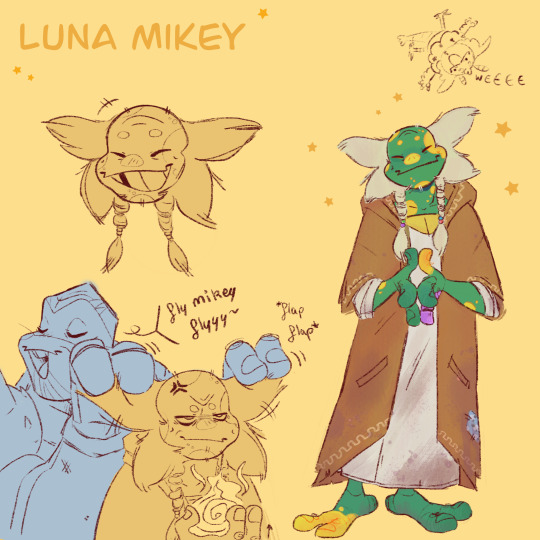
I present to you Luna Mikey ! From my apocalyptic AU Butterfly Effect !
This has been a little side project that i have been wanting to draw for so long !!!
Whenever i would see others draw peepaw apocalyptic Mikey, they would usually associate his magic with butterflies, materializing them for Casey or just in general
I wanted to play with that concept and make my own ! So yeah ! Born from love and in 2hours with AJR Inertia blasting on loop, this sketch and now full blown mystic warrior was born !
I have a whole story i would love to make, i already have the ending fully ready in my head.
When I was making this design i didn’t initially think about a specific butterfly, but when I drew the dread tails and it made me think of the Luna moth ! So I got curious and did some research, and HOLY SHIT i have never been so happy with results in my life !
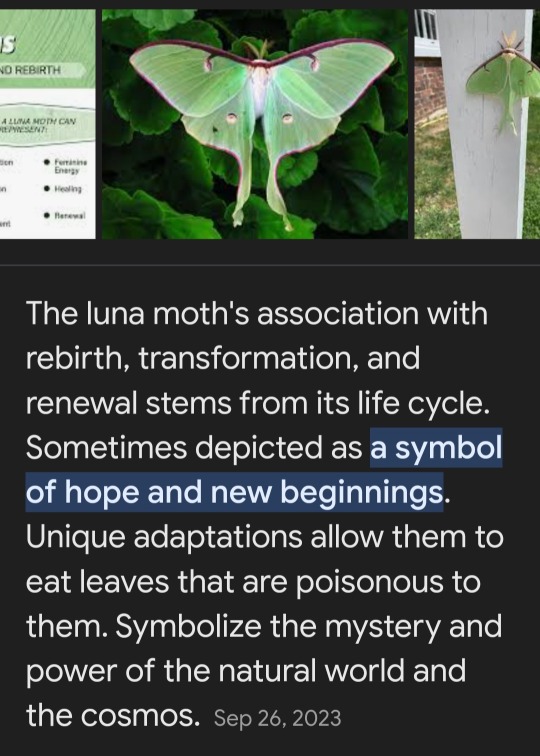
YOU CANNOT TELL ME THAT THIS DOESN’T JUST SCREAM MIKEY !! it’s so perfect ! It fits so perfectly ! I swear I’m not crazy !!! It’s just AH ! It JUST.MAKES.SENSE !
I rest my case
Next
#this sketch has been sitting in here for weeks !#I have never been happier#great start to my break#BE mikey#Bugs oc#Luna Mikey#rottmnt#rottmnt fanart#save rottmnt#rottmnt mikey#weepwonp
1K notes
·
View notes
Text
hey friends if you're looking for a way to limit social media consumption because your family makes you sad or you get into some real dark thoughts whenever you open twitter, here's something good you can do for yourself.
first, figure out what your muscle memory social media sites are. like for me, i usually pop open a twitter or facebook tab regardless of what i'm doing. i don't think about it, my fingers just kinda. go there, for checking on stuff. i use other social media sites but i have to think about going there, these are just my muscle memory social media sites. oh before i go further, this is for desktop/laptop, my advice for mobile is just uninstall the app versions of your muscle memory social media sites are.
then, download LeechBlock. there's other blockers too but like, that's the one I use bc I enjoy its functionality.
throw your muscle memory sites into the blocker. one of the things I like so much about LeechBlock is that you can give it blocks of time that you can access the site. if you have people you're checking on, if you want to get news from wherever, that's ok, but genuinely, do not give yourself unfettered access to the worst of what humanity has to offer. because that's what a lot of these muscle memory social media platforms are. because that's what a lot of social media has become. (not you tungl.hell, you're special.)
anyways here's what i set up. i noticed that it's facebook and twitter being my scylla and charbydis of doomscrolling, so i just created a custom filter to block them and just set my time limit to forever.

and if you NEED access to these sites you can set up times where you can block them more specifically, but for me, accessing them in my main browser is... a bad idea.
see, the whole point of this is to wean me off of the muscle memory. i'm use to pressing f+enter and facebook comes up. now when i want to access fb, it's a pain in the ass. that minor inertia keeps me away from it, and i can still easily access it in my work browser when i need it for herp society stuff. but that tiny barrier to entry makes a huge difference.
another thing you can do is log out of these sites each time you leave and have it not remember your login and so that makes logging in an intentional choice each time, which is often a disincentive or at least promotes spending more time deciding to be there. but that's more work than my lazy set it and forget it method.
the truth is that these sites are not likely to help you unless you're doing something specific and can avoid most of your feed. even if you have lots of good friends and community, you can't opt out of the terrible algo posts, and they are going to serve up polarizing content and right now, you probably don't need that. or if you do, you need it in a more mindful context, you need to not be sort of... drifting to your social platforms. i'm not saying don't engage at all, i'm saying be smart and thoughtful about it. as always, you are responsible for curating your own internet experience, and this includes after a real bad election. this is a tool you can use to protect yourself and stop doomscrolling before it starts.
258 notes
·
View notes